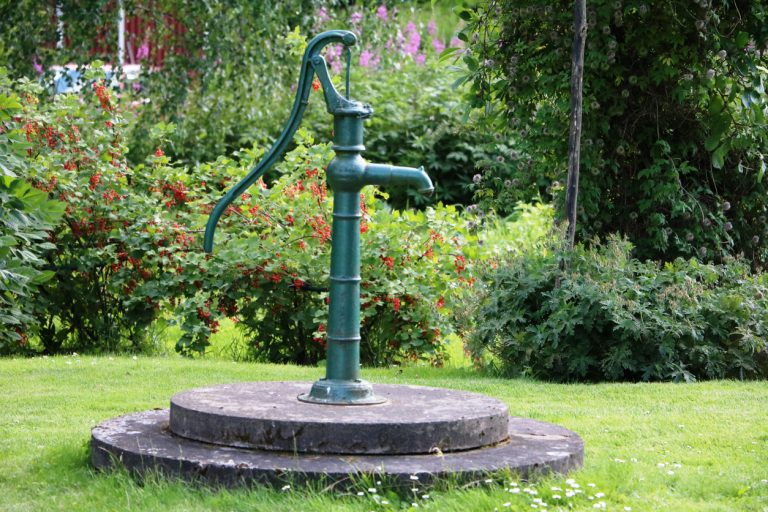Welcome to our latest blog post, where we dive into the depths of understanding well water—its essence, safety, and treatment. For many of our readers, from aquarium aficionados to green-fingered greenhouse growers, the quality of water is paramount. Whether you’re a homeowner, a pond enthusiast, or run a commercial business with a significant water footprint, this post is for you.
Last month, we touched on the practice of shocking a well, and today, we’ll explore well water more broadly to ensure you’re well-informed and your water is safe to drink.
What is Well Water?
At its core, well water is groundwater that’s accessed by digging or drilling wells into the earth’s surface. It’s a primary water source for many in rural areas, distinct from municipal water supplies that often come treated with chlorine. Well water taps directly into aquifers—natural underground reservoirs—and brings us closer to the untouched essence of our planet’s lifeblood.
Is Well Water Safe to Drink?
Safety first, as they say, and when it comes to well water, this adage couldn’t be more relevant. While well water benefits from being shielded from many contaminants that surface water is exposed to, it’s not without its risks. From bacteria and viruses to chemicals and heavy metals, well water can carry unwanted guests. The safety of well water hinges on regular testing and understanding what lurks beneath.
What Is in Well Water?
Well water’s composition varies widely based on location and depth. Common inhabitants of well water include:
Bacteria and Microorganisms: Natural but sometimes harmful guests.
Heavy Metals: Lead, arsenic, and others that sneak in from surrounding soil and rock.
Nitrates and Nitrites: Often from agricultural runoff, posing risks especially to infants.
Pesticides and Herbicides: Traces of agriculture’s battle against pests and weeds.
Hard Water Minerals: Calcium, magnesium, and others that affect taste and plumbing.
Understanding what’s in your well water is the first step toward ensuring its safety for consumption.
Where Do You Get Well Water?

The journey of well water begins with understanding its origins. It’s a fascinating voyage from nature’s underground reserves to our homes and communities. The quality of well water is indeed a reflection of the ground it filters through, carrying with it the signature of the land above and the rock below.
Residential Wells: Home is where the well is for many households. Residential wells provide a private water supply, often in rural settings where municipal services don’t reach. Picture a quaint countryside home, with a well system discreetly providing that all-important water for drinking, bathing, and nourishing the garden. However, it’s not merely about having a personal water source; homeowners must be proactive in maintaining it. Testing for contaminants such as radon, heavy metals, and microbial pathogens becomes a part of routine home maintenance, as these can affect not just the taste and smell, but more importantly, the safety of the water.
Agricultural Wells: The backbone of the heartland, agricultural wells are vital for irrigation, livestock, and other farm operations. In regions where rainfall is scarce or unpredictable, these wells are the lifeline for producing the food on our tables. But with this dependency comes great responsibility. Agricultural runoff can introduce nitrates, pesticides, and organic compounds into the water supply, necessitating vigilant monitoring and treatment processes to keep these wells safe and sustainable.
Community Wells: For small communities, a shared well can be the central source of H2O. It’s a communal resource that brings a sense of togetherness but also collective responsibility. Ensuring the purity of this water is crucial, as it must meet the health needs of diverse populations. Community wells require robust management and regular check-ups to protect against biological contaminants and the effects of industrial or environmental pollution.
In each of these scenarios, the geological conditions play a star role. The type of soil, the depth of the well, the bedrock composition—all of these can influence the mineral content and the presence of natural filters that help keep the water clean. The surrounding land use, from agriculture to industry, shapes the water’s quality, as activities on the surface can seep into groundwater reserves.
Monitoring and Maintaining Well Water Quality
To safeguard the health of those who rely on well water, regular testing is essential. It’s the only way to catch issues early and respond effectively. For instance, shocking a well—a process we detailed last month—can be an effective treatment for microbial contamination. Yet, it’s just one part of a comprehensive approach to water safety.
For homeowners, farmers, and community leaders, understanding the specific challenges of their well water source is vital. Engaging with local water specialists, staying informed about regional land use changes, and investing in reliable water purification systems are all part of responsible well water stewardship.
Ensuring Safe Well Water with UV Sterilization
Enter the realm of Aqua Ultraviolet’s innovative solutions, such as the Life Plus water filter and UV sterilizer. UV sterilization is a game-changer for well water treatment, effectively neutralizing harmful pathogens without altering the water’s taste or relying on chemicals. It’s a low-maintenance, energy-efficient method that ensures your water remains pure and safe.
Discover the benefits of Aqua Ultraviolet’s UV sterilization technology for yourself. Learn more about the Life Plus system here.
Understanding well water is the first step toward ensuring its quality and safety. From its source beneath the earth to the tap in your home, well water’s journey is complex and filled with potential pitfalls. Regular testing, coupled with state-of-the-art treatment options like UV sterilization from Aqua Ultraviolet, can make all the difference.
Ensure your water is not just clean, but Aqua Ultraviolet clean. Protect your health and peace of mind by exploring the Life Plus water filter and UV sterilizer. Your water deserves nothing less.
